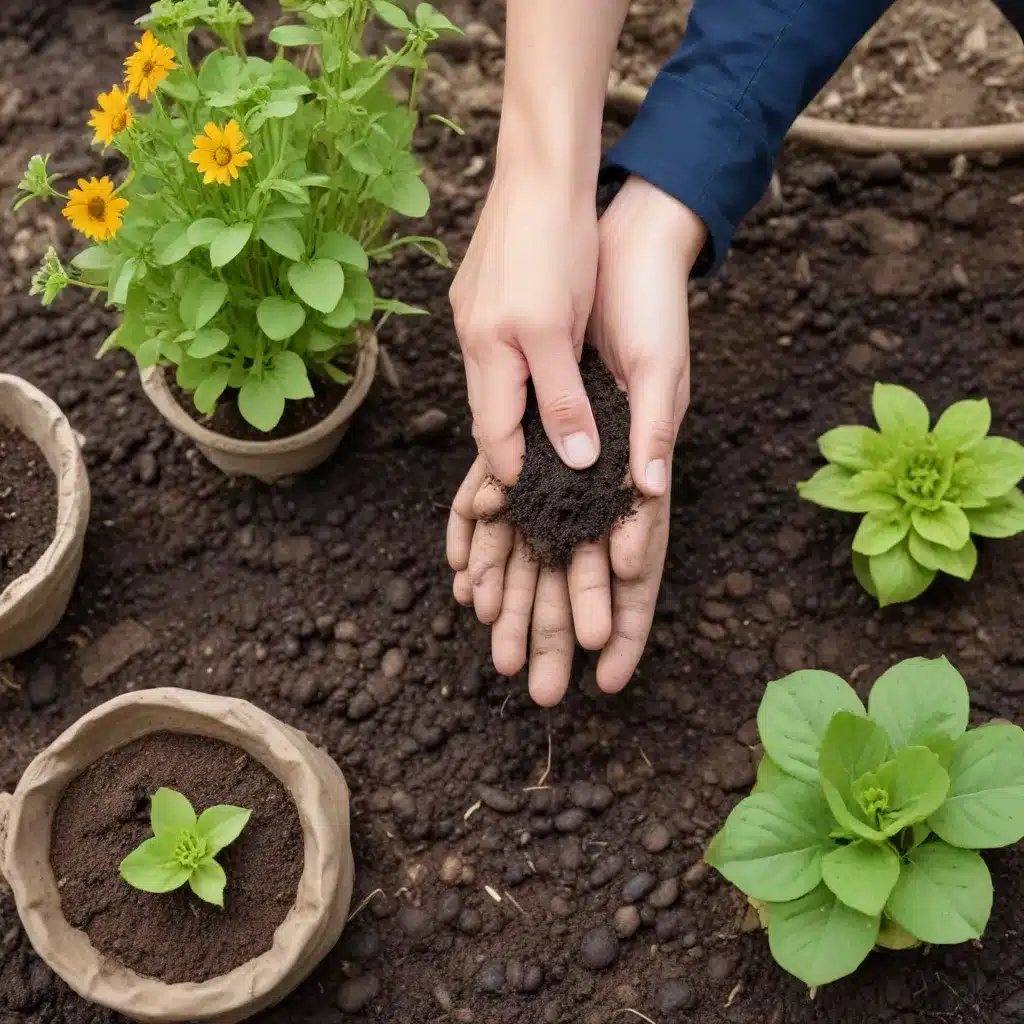
At Crooked Pines Farm, we believe that the path to a thriving, resilient future lies in the very ground beneath our feet. As farm educators, we’re passionate about sharing sustainable gardening practices that nourish the land, support biodiversity, and empower the next generation of stewards.
Soil Health Considerations
The foundation of any successful garden is healthy soil. Organic gardeners recognize that soil is a living, breathing ecosystem teeming with microorganisms, fungi, and beneficial insects that work together to support plant growth. By focusing on building and maintaining fertile, well-structured soil, we can reduce the need for synthetic inputs and create a more self-sustaining system.
Composting is one of the cornerstones of organic soil management. By incorporating decomposed organic matter like kitchen scraps, yard waste, and animal manure, we enrich the soil with essential nutrients, improve its water-holding capacity, and foster a thriving microbial community. Regular applications of compost also help to suppress weeds and improve soil structure, making it easier for plant roots to grow and access the resources they need.
In addition to compost, cover cropping and crop rotation are powerful tools for maintaining soil health. Cover crops, such as clover, rye, or vetch, are planted during fallow periods to protect the soil from erosion, fix atmospheric nitrogen, and add organic matter when incorporated back into the soil. Rotating crops, on the other hand, helps to break pest and disease cycles, prevent nutrient depletion, and promote biodiversity aboveground and below.
Water Conservation Strategies
Water is a precious resource, and as gardeners, we have a responsibility to use it wisely. At Crooked Pines Farm, we employ a range of strategies to minimize our water usage and ensure the long-term sustainability of our gardening efforts.
One of the most effective methods is the installation of efficient irrigation systems, such as drip or soaker hoses, which deliver water directly to the root zone of plants, reducing evaporation and runoff. We also carefully select drought-tolerant plants that are well-suited to our regional climate, reducing the need for supplemental watering.
Rainwater harvesting is another key component of our water conservation efforts. By capturing and storing rainwater in cisterns or rain barrels, we can use this precious resource to nourish our gardens during drier periods, reducing our reliance on municipal or well water.
Ecological Biodiversity Promotion
Sustainability in the garden extends beyond just the soil and water – it’s also about fostering a vibrant, diverse ecosystem that supports a wide range of beneficial organisms. At Crooked Pines Farm, we take great care to integrate plants that attract and support pollinators, such as bees, butterflies, and hummingbirds.
By including a variety of nectar-rich flowers, host plants for caterpillars, and shelter-providing shrubs and trees, we create a haven for these crucial creatures. We also avoid the use of broad-spectrum pesticides, which can harm beneficial insects, in favor of integrated pest management techniques that target specific pests while preserving the delicate balance of our garden ecosystem.
Renewable Energy Applications
As stewards of the land, we’re always seeking ways to reduce our environmental impact and harness the power of renewable resources. At Crooked Pines Farm, we’ve embraced the use of solar-powered garden tools, such as cordless trimmers and mowers, which eliminate the need for gasoline and minimize noise pollution.
We’ve also explored the potential of wind-driven irrigation pumps to water our crops, taking advantage of the natural air currents that flow across our fields. And of course, we’re big proponents of composting, which allows us to transform organic waste into nutrient-rich soil amendments, reducing our reliance on synthetic fertilizers.
By incorporating these sustainable practices into our gardening routine, we’re not only reducing our carbon footprint but also creating a more resilient, self-sustaining system that can withstand the challenges of a changing climate.
Engaging the Next Generation
At Crooked Pines Farm, we believe that cultivating a love for the land and a deep understanding of sustainable gardening practices is essential for the future of our planet. That’s why we’ve developed a robust educational program for children and families, inviting them to explore the wonders of our nature trails, hands-on learning stations, and kid-friendly gardening activities.
Through interactive demonstrations, seed-starting workshops, and farm-to-table cooking classes, we empower young learners to become active participants in the stewardship of our shared resources. By fostering a sense of wonder and connection with the natural world, we hope to inspire the next generation of environmental advocates and self-sufficient gardeners.
Embracing the Seasonal Rhythms
At Crooked Pines Farm, we celebrate the ebb and flow of the seasons, acknowledging the unique gifts and challenges that each one brings. From the vibrant blooms of spring to the abundant harvests of summer, the cozy comforts of autumn, and the quiet contemplation of winter, we strive to align our gardening practices with the natural rhythms of the land.
Whether we’re preserving the season’s bounty in the form of jams, pickles, and dried herbs, or planning our next crop rotation to replenish the soil, we find joy in the cyclical nature of farm life. And as we gather with our community for seasonal events like harvest festivals and winter wreath-making workshops, we deepen our connection to the land and to one another, cultivating a sense of stewardship that extends far beyond the boundaries of our own gardens.
By embracing sustainable gardening practices, we’re not only ensuring the long-term health and vitality of our own farm, but also contributing to a more resilient and regenerative future for our entire community. Join us as we sow the seeds of stewardship and watch them bloom into a bountiful, harmonious tomorrow.


